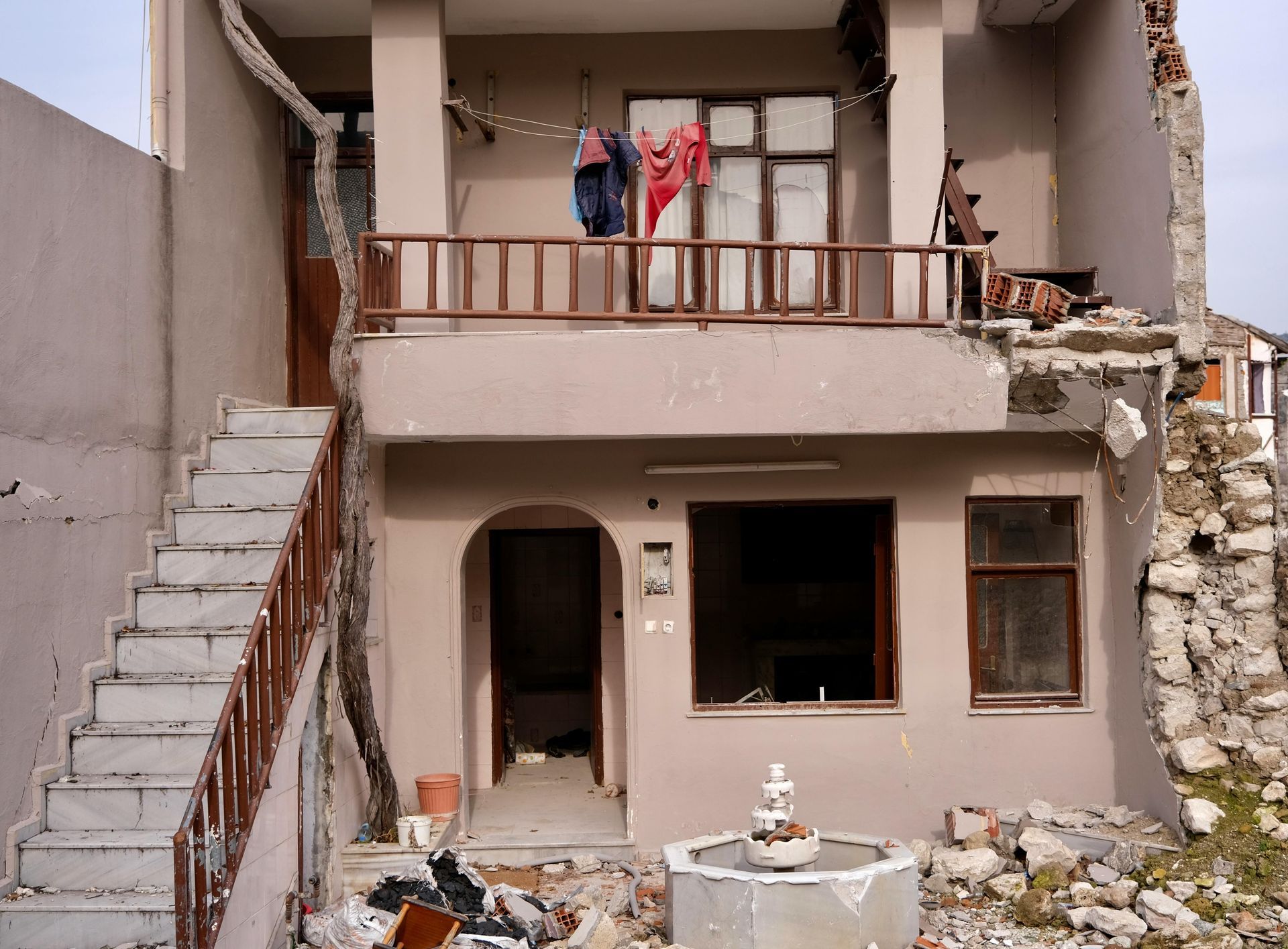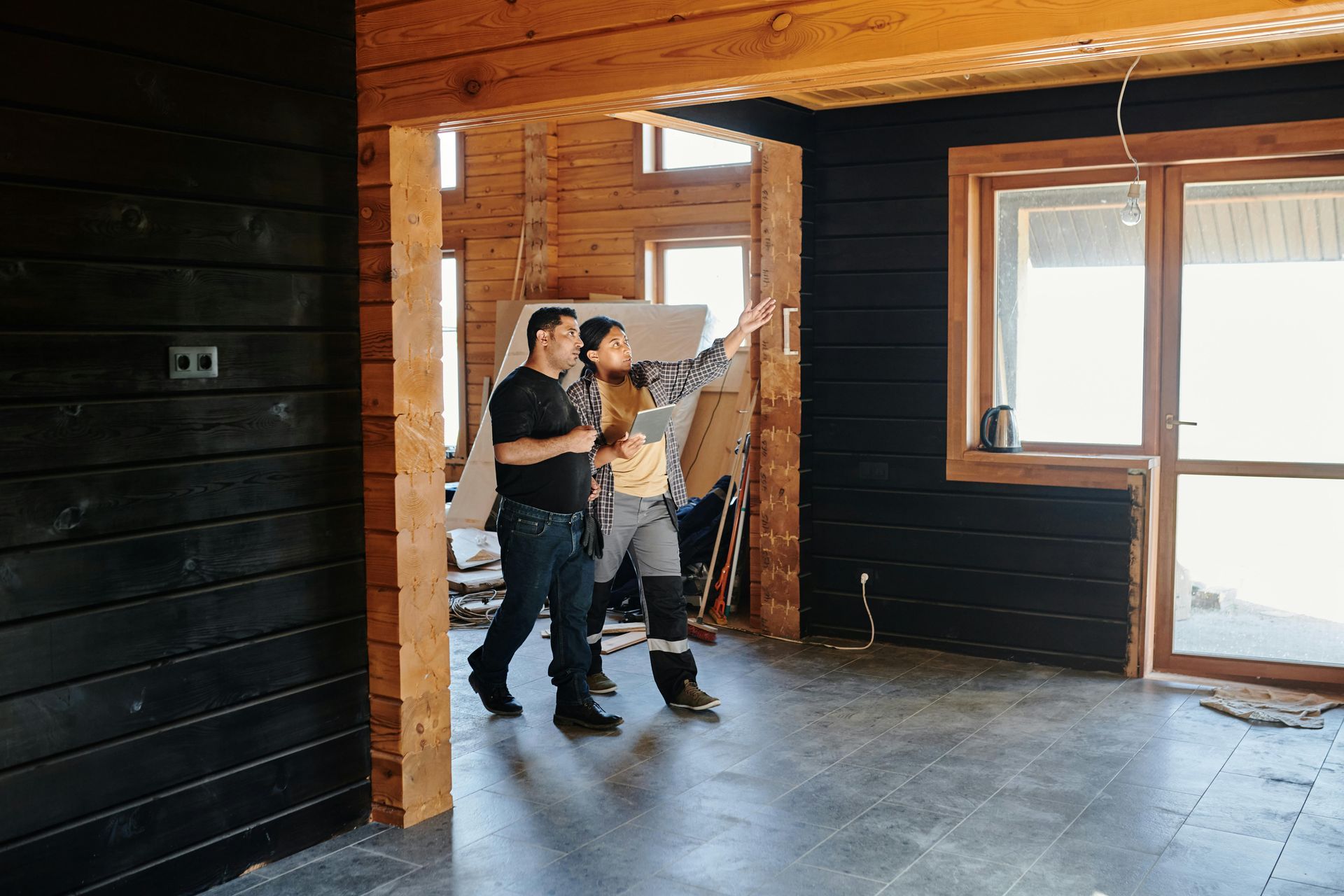Protecting Your Property: The Essentials of Earthquake Insurance
This is a subtitle for your new post

When it comes to natural disasters, few events are as unpredictable and potentially devastating as an earthquake. With tremors and quakes occurring globally, even in regions not historically prone to them, the importance of being prepared is greater than ever. At Insurance Alliance LLC, we aim to equip you with the knowledge to make informed decisions about your coverage needs. In this post, we’ll dive into everything you need to know about earthquake insurance, from why you need it to how it works.
What is Earthquake Insurance?
Earthquake insurance is a form of property insurance specifically designed to cover losses resulting from earthquake damage. Unlike standard homeowner's policies, earthquake coverage protects against ground movement and the resulting damage, which is often excluded in traditional policies. This type of insurance is crucial in earthquake-prone areas, but it’s also valuable in regions where earthquakes are unexpected and homeowners might not be prepared for the financial impact.
Why You Need Earthquake Insurance
While some regions are more susceptible to seismic activity than others, recent data shows that earthquakes are occurring with increasing frequency in areas once considered safe. As such, it’s crucial to assess your risk based on geography, building structure, and other factors. Here’s why investing in earthquake insurance is a wise choice:
- Standard Policies Don’t Cover Earthquakes: Most homeowners’ and renters’ insurance policies do not cover earthquake damage. Adding a specific earthquake policy or endorsement ensures that your property is protected.
- The Cost of Repairs Can Be Significant: Earthquakes can result in damages ranging from minor cracks to complete structural destruction. Repair costs often exceed tens of thousands of dollars and, without insurance, homeowners bear the entire financial burden.
- Mortgage Requirements: Some mortgage lenders in earthquake-prone areas require earthquake insurance as part of their loan terms, particularly for high-value properties.
- Peace of Mind: Knowing you’re covered can provide immense relief in the event of an earthquake, allowing you to focus on safety rather than financial strain.
How Does Earthquake Insurance Work?
Earthquake insurance policies vary, but most cover:
- Rebuilding or Repairing Structures: If your property sustains structural damage, your policy will help cover repair or rebuilding costs.
- Personal Belongings: Earthquake insurance can help replace damaged or destroyed personal items, from furniture to electronics.
- Additional Living Expenses (ALE): If your home becomes uninhabitable, ALE coverage helps pay for temporary housing, meals, and other expenses.
It’s essential to note that earthquake policies usually come with higher deductibles than standard homeowners’ insurance, often ranging from 10% to 20% of the coverage limit. This deductible means you’ll pay a significant portion out-of-pocket before insurance kicks in, but in the case of major damage, the protection is invaluable.
Coverage Options and Endorsements
When purchasing earthquake insurance, you’ll have various options to tailor the policy to your needs:
- Dwelling Coverage: This covers the structure of your home and attached structures, like garages or decks. It’s based on the cost to rebuild rather than the market value.
- Contents Coverage: Personal belongings, like electronics, clothing, and furniture, are covered. It’s worth creating an inventory of items for valuation.
- Loss of Use/Additional Living Expenses: If you need temporary housing, this part of your policy helps cover those costs, making it invaluable if an earthquake displaces you from your home.
Factors Affecting Earthquake Insurance Premiums
The cost of earthquake insurance varies based on several factors, including:
- Location: High-risk areas like California typically have higher premiums due to the frequency of earthquakes.
- Home Age and Structure: Older buildings and those built from brick or stone may have higher premiums, as these materials don’t withstand quakes as well as wood.
- Deductibles: Choosing a higher deductible can lower your premium, but it also means more out-of-pocket costs in the event of a claim.
- Rebuilding Cost: The amount of coverage needed to rebuild will affect your premium. Properties with high-value structures will generally have higher premiums.
Understanding Earthquake Deductibles
Earthquake deductibles work differently from other types of insurance. Rather than a flat fee, the deductible is a percentage of the overall policy limit. For instance, if your dwelling coverage limit is $300,000 with a 15% deductible, you would need to cover the first $45,000 of any earthquake-related repairs.
While a higher deductible lowers your premium, be sure to choose one you could realistically cover if an earthquake strikes.
Should Renters Consider Earthquake Insurance?
While renters don’t need to insure the building itself, earthquake insurance is still beneficial. Renters’ earthquake policies primarily cover personal belongings and any loss of use expenses if you’re displaced. For those renting in earthquake-prone areas, this coverage provides peace of mind and can be more affordable than homeowners’ policies.
Common Misconceptions about Earthquake Insurance
Many people assume earthquake insurance is unnecessary if they don’t live in a high-risk area, but that’s a risky misconception. Here are some common misunderstandings and why they’re problematic:
- “I Don’t Live in a High-Risk Area”: Earthquakes can happen anywhere, and when they do, the lack of preparedness can exacerbate damage. Non-traditional zones may also have older buildings that can sustain more damage.
- “My Homeowners Insurance Covers Earthquakes”: Standard policies almost never cover earthquake damage. You need specific earthquake coverage or an endorsement to be protected.
- “Earthquake Insurance is Too Expensive”: While premiums vary, there are ways to make earthquake insurance affordable. Opting for a higher deductible, shopping around for competitive rates, and selecting only the coverage you need can help make earthquake insurance accessible.
Tips for Lowering Earthquake Insurance Premiums
Earthquake insurance doesn’t have to break the bank. Here are some tips for managing costs while still securing coverage:
- Increase Your Deductible: As with other types of insurance, a higher deductible often means a lower premium.
- Invest in Seismic Retrofitting: Reinforcing your home to withstand earthquakes can sometimes lead to discounts on premiums. Certain retrofits, such as bolting the foundation or reinforcing walls, make homes safer and less costly to insure.
- Compare Quotes: Insurance premiums vary widely between providers, so shop around to find the best rates.
- Bundle Insurance Policies: Some providers offer discounts if you bundle earthquake insurance with other policies, such as homeowners or auto insurance.
How to Purchase Earthquake Insurance
Earthquake insurance can be added to a standard homeowners’ policy through an endorsement or purchased as a separate policy from specialty insurers. As you explore your options, consider these steps:
- Assess Your Risk: Look into seismic activity in your area and evaluate the vulnerability of your home. This information can help you decide on coverage levels and deductible amounts.
- Shop Around: Earthquake insurance rates can vary greatly between insurers. Obtaining multiple quotes will help ensure you get the best price for the coverage you need.
- Speak with an Agent: Consulting with an experienced insurance agent at Insurance Alliance LLC can make the process easier, helping you understand your options and choose the best policy.
- Review and Update Annually: Reassess your earthquake insurance each year or after major home improvements to ensure your coverage meets your needs.
The Bottom Line: Peace of Mind in an Unpredictable World
While it’s impossible to predict an earthquake, it is possible to protect yourself financially in the aftermath. Earthquake insurance provides the security and peace of mind that, should a quake occur, you won’t face the burden of rebuilding alone. At Insurance Alliance LLC, we’re here to help you make informed decisions about your coverage needs, so you can protect what matters most. Reach out to our team today to learn more about your earthquake insurance options and take the first step toward greater security.
With the right knowledge and preparation, you can mitigate the financial risks of earthquakes and focus on what’s most important: your safety and well-being.











